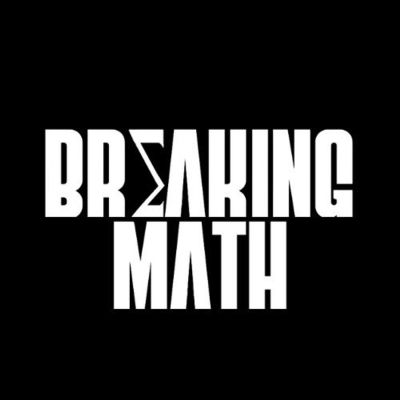Hosted by Gabriel Hesch and Autumn Phaneuf, who have advanced degrees in EE and industrial engineering/operations research respectively, come together to discuss mathematics as a pure field al in its own as well as how it describes the language of science, engineering, and even creativity. Breaking Math brings you the absolute best in interdisciplinary science discussions - bringing together experts in varying fields including artificial intelligence, neuroscience, evolutionary biology, physics, chemistry and materials-science, and more - to discuss where humanity is headed. website: breakingmath.io linktree: linktree.com/breakingmathmedia email: breakingmathpodcast@gmail.com
http://www.breakingmath.io
episode 90: 90. LEAN Theorem Provers used to model Physics and Chemistry
Breaking Math Website
Breaking Math Email: BreakingMathPodcast@gmail.com
Email us for copies of the transcript!
Resources on the LEAN theorem prover and programming language can be found at the bottom of the show notes (scroll to the bottom).
Summary
This episode is inspired by a correspondence the Breaking Math Podcast had with the editors of Digital Discovery, a journal by the Royal Society of Chemistry. In this episode the hosts review a paper about how the Lean Interactive Theorem Prover, which is usually used as a tool in creating mathemtics proofs, can be used to create rigorous and robust models in physics and chemistry.
The paper is titled Formalizing chemical physics using the Lean Theorem prover and can be found in Digital Discovery, a journal with the Royal Society of Chemistry.
Also - we have a brand new member of the Brekaing Math Team! This episode is the debut episode for Autumn, CEO of Cosmo Labs, occasional co-host / host of the Breaking Math Podcast, and overall contributor who has been working behind the scenes on the podcast on branding and content for the last several months. Welcome Autumn!
Autumn and Gabe discuss how the paper explores the use of interactive theorem provers to ensure the accuracy of scientific theories and make them machine-readable. The episode discusses the limitations and potential of interactive theorem provers and highlights the themes of precision and formal verification in scientific knowledge. This episode also provide resources (listed below) for listeners intersted in learning more about working with the LEAN interactive theorem prover.
Takeaways
- Interactive theorem provers can revolutionize the way scientific theories are formulated and verified, ensuring mathematical certainty and minimizing errors.
- Interactive theorem provers require a high level of mathematical knowledge and may not be accessible to all scientists and engineers.
- Formal verification using interactive theorem provers can eliminate human error and hidden assumptions, leading to more confident and reliable scientific findings.
- Interactive theorem provers promote clear communication and collaboration across disciplines by forcing explicit definitions and minimizing ambiguities in scientific language. Lean Theorem Provers enable scientists to construct modular and reusable proofs, accelerating the pace of knowledge acquisition.
- Formal verification presents challenges in terms of transforming informal proofs into a formal language and bridging the reality gap.
- Integration of theorem provers and machine learning has the potential to enhance creativity, verification, and usefulness of machine learning models.
- The limitations and variables in formal verification require rigorous validation against experimental data to ensure real-world accuracy.
- Lean Theorem Provers have the potential to provide unwavering trust, accelerate innovation, and increase accessibility in scientific research.
- AI as a scientific partner can automate the formalization of informal theories and suggest new conjectures, revolutionizing scientific exploration.
- The impact of Lean Theorem Provers on humanity includes a shift in scientific validity, rapid scientific breakthroughs, and democratization of science.
- Continuous expansion of mathematical libraries in Lean Theorem Provers contributes to the codification of human knowledge.
- Resources are available for learning Lean Theorem Proving, including textbooks, articles, videos, and summer programs.
Resrouces / Links:
Email Professor Tyler Josephson about summer REU undergraduate opportunities at the University of Maryland Baltimore (or online!) at tjo@umbc.edu.
See below Professor Tyler Josephson's links on learnnig more about LEAN
The Natural Number Game: Start in a world without math, unlock tactics and collect theorems until you can beat a 'boss' level and prove that 2+2=4, and go further.
Free LEAN Texbook and Course
Professor Josephson's most-recommended resource for beginners learning Lean - a free online course and textbook from Prof. Heather Macbeth at Fordham University.
Quanta Magazine articles on Lean
Prof. Kevin Buzzard of Imperial College London's lecture on LEAN interactive theorem prover and the future of mathematics.
Become a supporter of this podcast: https://www.spreaker.com/podcast/breaking-math-podcast--5545277/support.
